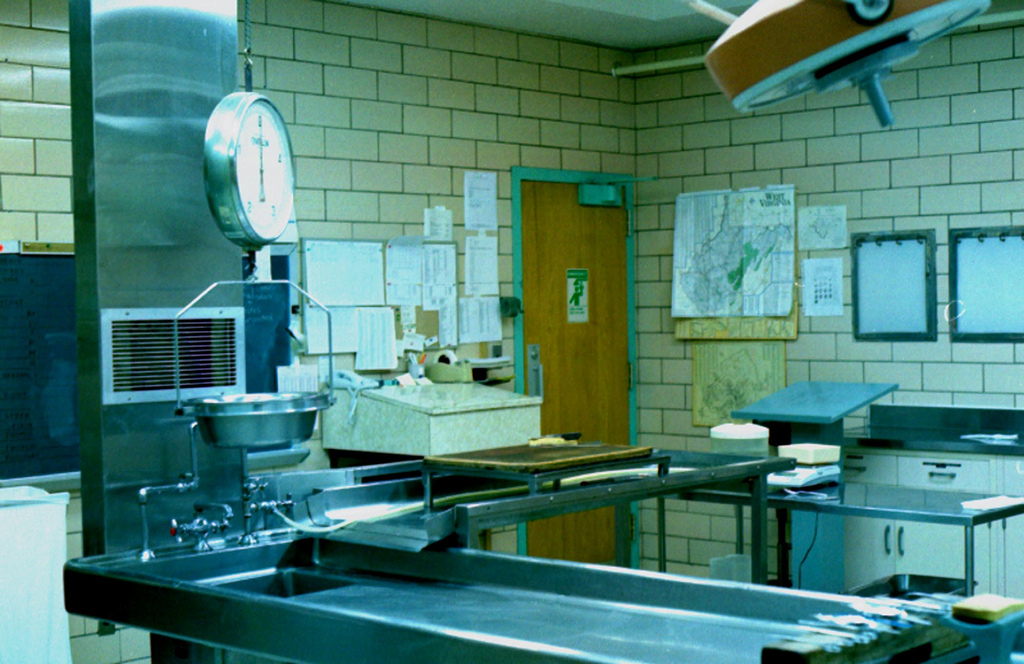I found an article recently that brought some of my own experiences back to me. It was called, somewhat gruesomely, “What Not To Do In a Morgue“. And it led me to recall that my first two years out of high school I was responsible for a morgue.
Specifically, I was a house orderly at the now-defunct Meriden-Wallingford hospital in my hometown of Meriden, Connecticut. As such, I had a number of morgue-related duties. Without going into what often were the truly gory details, that job most often made me wonder two things:
- What in the world made the people who hired me imagine a boy in his late teens was psychologically or emotionally equipped to contend with some of the job’s more grim tasks?
- Aside from teaching me I wasn’t cut out for a career in medicine, what in the world could I take from the job that might be of lasting value or meaning for the rest of my life?
More than 40 years later, question #1 remains elusively unanswerable. But question #2 continues to yield profound lessons. Among them:
- Life is short, sometimes brutally so. That tends to make every moment precious and every additional day a treasure.
- Loss is universal. But sorrow allows us to witness transcendent grace, the wisdom of acceptance, and the strength to endure.
- We control nothing. Knowing that gives us the freedom to celebrate every occasion of joy and to triumph over the shortness of life, to overcome loss and sorrow, and to be free from all illusions of control.
We’re all alive on arrival. What we do after that is up to us.
What experiences from your life shape you today, personally or professionally? Please feel free to tell your story below. We’ll all be richer for the sharing.
—
By (NIOSH) from USA (Working in the morgue) [CC-BY-2.0 (http://creativecommons.org/licenses/by/2.0) or Public domain], via Wikimedia Commons

